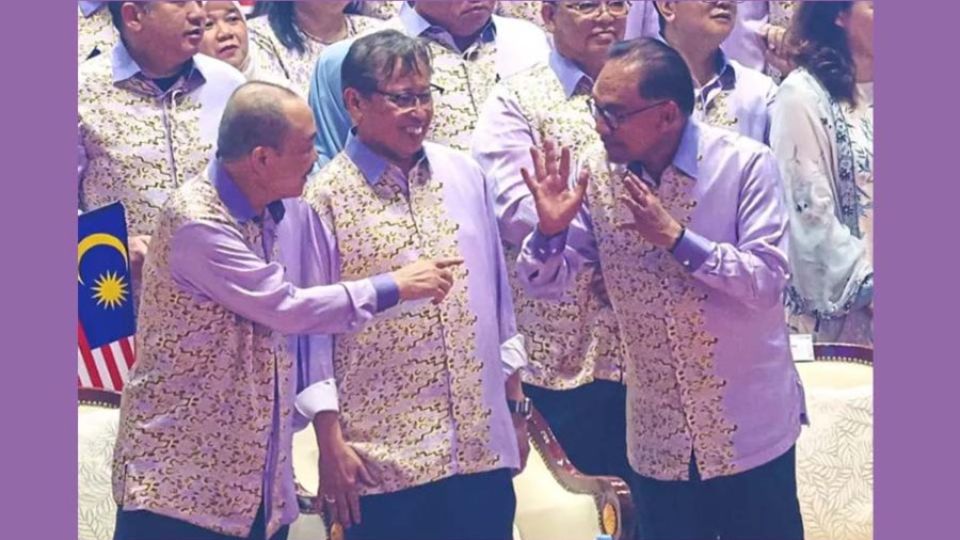December 2, 2024
KUALA LUMPUR – IT has been two years since Datuk Seri Anwar Ibrahim was appointed the 10th Prime Minister of Malaysia.
If we rewind to before November 2022, not many would have bet that the Pakatan Harapan chairman and PKR president could be PM. Against all odds, the politician, who was one heartbeat away from becoming Prime Minister when he was Deputy Prime Minister and Umno deputy president in the 1990s, finally made it.
Anwar was jailed twice after his fallout with the then prime minister Tun Dr Mahathir Mohamad, who sacked him from the second most important posts (before 2018) in Malaysian politics – deputy prime minister and Umno deputy president.
But at 75, Anwar made history after the 15th general election (GE15) in 2022 when he was appointed Prime Minister.
It is one of the big comebacks in Malaysian political history.
The other big comeback is of course Dr Mahathir’s, who was made prime minister for the second time.
In the first few months of his term as Prime Minister, Anwar’s unity government was seen as shaky.
Perikatan Nasional, with 74 MPs from PAS and Bersatu, was a formidable opposition front against Anwar’s unity government. The unity government bloc consisted of Pakatan (81 MPs), Barisan Nasional (30 MPs), Gabungan Parti Sarawak (or GPS, with 23 MPs), Gabungan Rakyat Sabah (six), Parti Warisan (three), independents (two), Parti Bangsa Malaysia (one), Parti Kesejahteraan Demokratik Masyarakat (one) and Muda (one).
Many saw those numbers and calculated that the Madani government, as some called the unity government, had two-thirds support of MPs. But, if they focused on the numbers that separated Pakatan (81 MPs) and Perikatan (74), only seven MPs separated the two coalitions.
Last year, there was constant speculation about whether Perikatan could get enough MPs from Barisan, GPS, GRS, and small parties to topple the Madani government.
One big date for this to happen was after the results of the six state elections on Aug 12, 2023. If Perikatan had done well in the elections in Kedah, Kelantan, Negri Sembilan, Penang, Selangor, and Terengganu, it could have been a game changer, especially if the opposition coalition won the state government of Negeri Sembilan, Penang, or Selangor. It would have shown that the rakyat, especially the Malays, backed the opposition.
However, it was status quo. Perikatan retained its stronghold states of Kedah, Kelantan and Terengganu, while Pakatan kept Penang, Negeri Sembilan and Selangor.
From there, Perikatan lost steam in the perception that it could topple the Madani government. The results of several by-elections were status quo, with the coalitions Pakatan, Barisan, and Perikatan retaining their seats.
Then came the 2024 Nenggiri by-election on Aug 17. Perikatan, represented by Bersatu, lost an incumbent seat in its stronghold Kelantan. It was a morale booster for Umno to recapture a traditional seat lost in the 2023 state election.
The Neggiri by-election was sparked when the Kelantan state assembly declared the seat vacant. Mohd Azizi Abu Naim, a Bersatu politician who was also a Gua Musang MP, held it.
The Gua Musang MP and five other Bersatu MPs called rogue Bersatu Six declared their support for Prime Minister Datuk Seri Anwar Ibrahim.
Subsequently, Parliament Speaker Tan Sri Johari Abdul ruled that the MPs from Jeli, Gua Musang, Bukit Gantang, Kuala Kangsar, Tanjong Karang and Labuan could retain their seats despite the anti-hopping law. They are now pro-Anwar independent MPs. With them leaving or expelled from Bersatu, Perikatan’s 74 MP seats were reduced to 68. The gap between Perikatan and Pakatan in the number of MPs increased to 13.
The talk about the Perikatan government wrestling the Federal government from Anwar became less and less until not many talked much about it.
Umno president Datuk Seri Dr Ahmad Zahid Hamidi did talk about a fresh attempt. On Nov 24, the Deputy Prime Minister claimed that opposition MPs approached him to lead Barisan out of the federal government to form a new political alignment.
However, Bersatu deputy president Datuk Seri Hamzah Zainudin clarified that the Perikatan MP who met Ahmad Zahid was an old friend of the Umno president and was not given any mandate from the opposition coalition to negotiate the fall of Anwar’s government.
If Ahmad Zahid had not brought up the matter, there would not have been much talk about the possibility of Perikatan doing what it did to the Dr Mahathir government. In 2020, Bersatu (minus Team Dr Mahathir), PAS, Umno and a faction of PKR gang up and toppled the Pakatan government.
On the two-year anniversary of the Madani government, it is not that Anwar’s unity government is strong; it is that the opposition is weak. There is infighting in Bersatu, and the leaders are more focused on killing each other than taking over the Federal government.
The political chatter no longer mentions Perikatan as the main factor in a change of government. The one that I hear getting louder is the Borneo Bloc. There is manageable tension between Prime Minister Anwar and Sarawak (GPS-led government with 23 seats) and Sabah (GRS-led government with six MP seats).
The two territories in Borneo are demanding their rights as stated under the Malaysian Agreement 1963 (MA63). However, in matters especially concerning funds, the Anwar government is perceived by Sabahans and Sarawakians as resisting.
If united, the Borneo Bloc is formidable. The Prime Minister must handle the matter delicately. Is it in his political DNA to do so?


